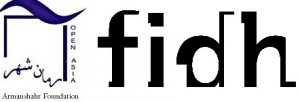18 September 2012
At the Human Rights Council’s 21st session in Geneva, the International Federation for Human Rights (FIDH) and the Armanshahr Foundation/OPEN ASIA  alerted the international community to an upsurge in violence in Afghanistan. The last two months have been characterised by a new wave of brutality and summary executions by the Taliban. Thus far, however, the Council has failed to take action.
alerted the international community to an upsurge in violence in Afghanistan. The last two months have been characterised by a new wave of brutality and summary executions by the Taliban. Thus far, however, the Council has failed to take action.
In its 2012 Midyear Report on the Protection of Civilians in Armed Conflicts in Afghanistan, the United Nations Assistance Mission in Afghanistan (UNAMA) reported that during the first half of the year, conflict-related violence led to 1,145 civilian deaths and 1,954 injuries, including 925 women and children. Moreover, conflict-related violence has displaced approximately 114,900 people in Afghanistan of whom 17,079 were newly displaced in the first half of 2012. The Taliban, which has publicly stated that it will continue to target persons protected as “civilians” under international humanitarian law, were responsible for 80 per cent of civilian casualties in the first half of 2012.
In particular, attacks against schools have increased. This has affected children’s access to education. In April 2012, 150 schoolgirls were poisoned by contaminated drinking water in Takhar province. Many cases of acid being thrown in the faces of women and girls walking to school have been reported in the last few years.
In August 2012, a 6-year old girl and a 12-year old boy were beheaded in two separate incidents in Taliban-controlled areas. Seventeen other civilians were beheaded in Helmand province.
“The Government of Afghanistan should urgently investigate such horrendous murders, bring those responsible to justice and ensure that effective remedies are provided for victims,” said Souhayr Belhassen, FIDH president.
“As the UN Security Council underlined in Security Council Resolution 1325, it is critical that all States apply the norms of international humanitarian and human rights law fully to women and girls, and to take special measures to protect women and girls from gender-based violence during armed conflict,” she added.
Over the past year, local residents have regularly raised concerns with UNAMA that human rights abusers are being recruited into the Afghan Local Police. There is also strong evidence that the Taliban are increasingly infiltrating Afghan forces, resulting in multiplying attacks on international and Afghan forces.
“In the wake of recent atrocities, the international community must continue to closely monitor the human rights situation in Afghanistan as it pledged to at the Tokyo Conference on Afghanistan on 8 July 2012. The UN Human Rights Council has the responsibility to prevent abuses wherever they occur. We regret that they remain silent on these atrocious crimes,” said Guissou Jahangiri, Director of Armanshahr Foundation/OPEN ASIA.
In a report published in May 2012, FIDH and Armanshahr Foundation/OPEN ASIA made recommendations to the Government of Afghanistan, the United Nations, NATO member States and the International Criminal Court.

